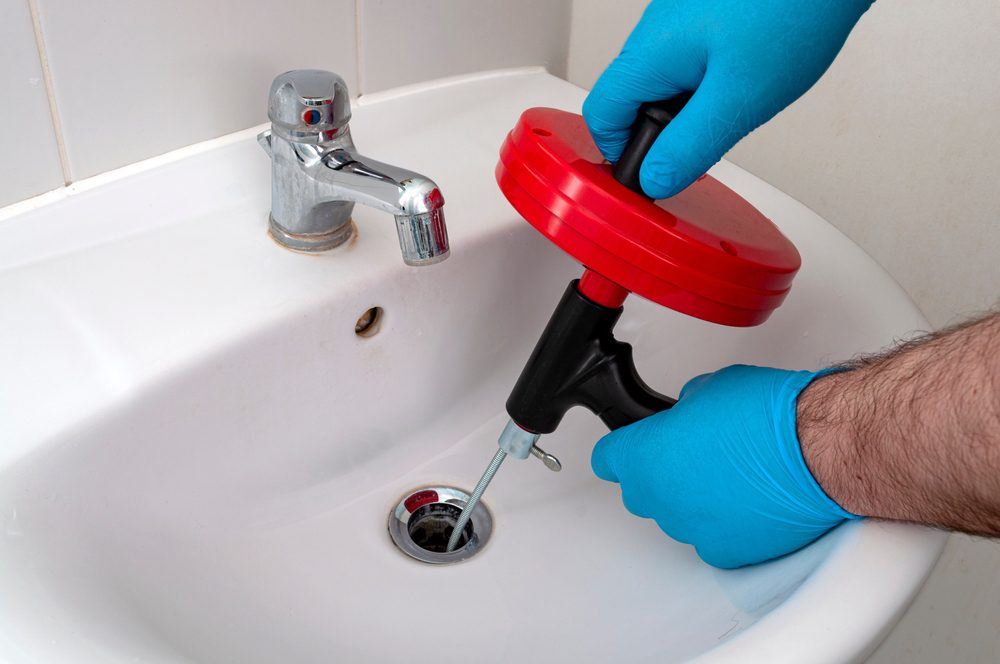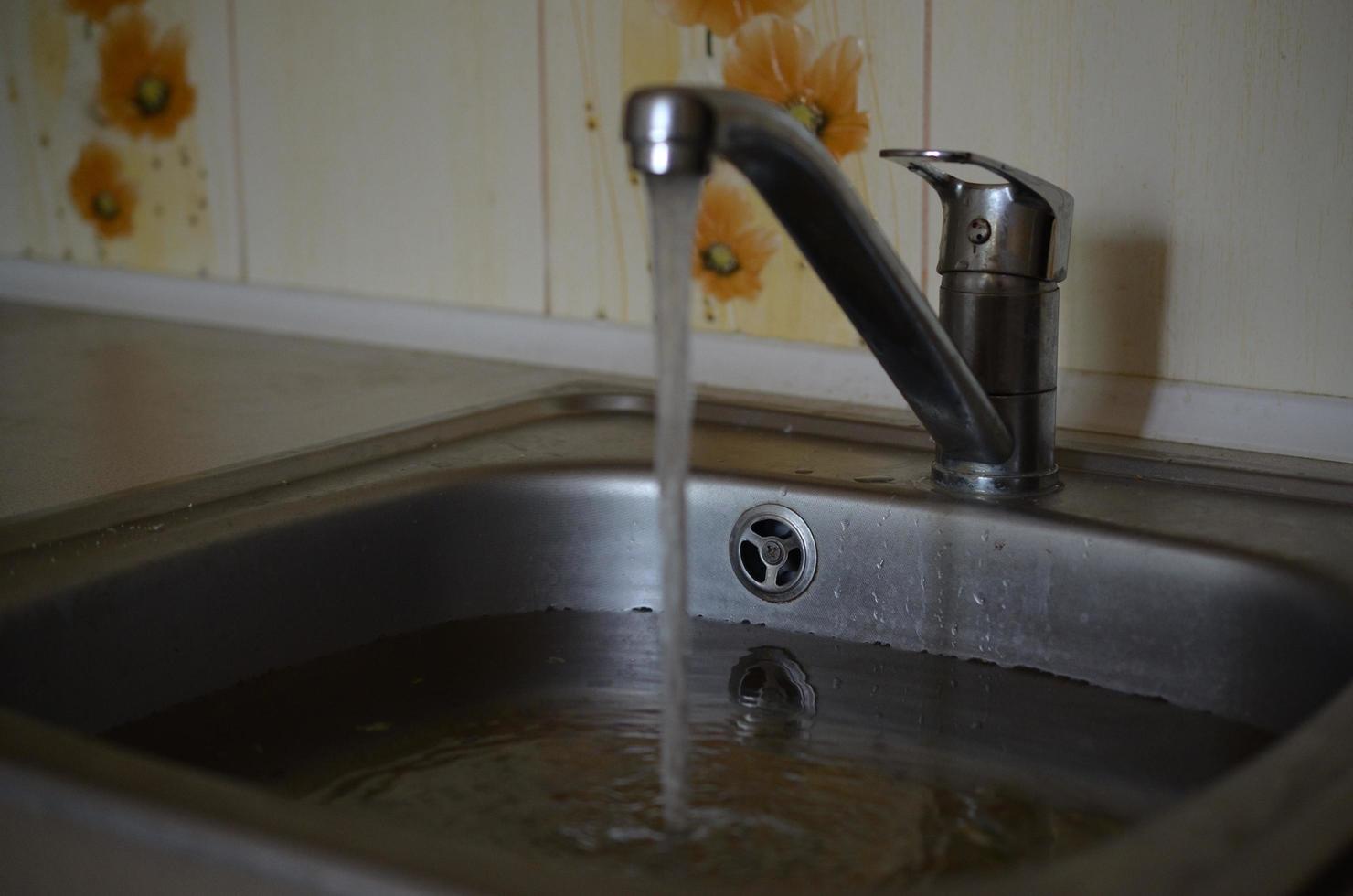Top Strategies For Correcting A Slow-Draining Sink
Top Strategies For Correcting A Slow-Draining Sink
Blog Article
What are your thoughts on 7 Ways To Fix A Slow-Draining Sink Before You Call A Plumber?

Intro
We have actually all been there: You're cleaning your teeth or cleaning your hands, and you observe the water merging in the sink. As opposed to promptly swirling away, it remains, turning your once-refreshing morning routine right into a miniature overload scene. A slow-draining sink isn't simply aggravating; it's usually an indicator of bigger pipes problems lurking under the surface. The good news is that a lot of slow-draining sinks can be fixed with a little expertise, a few basic devices, and some patience. Ready to tackle this job head-on? Allow's roll up our sleeves and dive right in.
Understanding the Root Causes Of a Slow-Draining Sink
Prior to you begin poking around in your pipelines, it aids to recognize what might be triggering the stagnation. Comprehending the source makes it easier to pick the ideal solution.
Typical Perpetrators Behind Slow Drainage
So, what's blocking things up? Commonly, it's a mix of day-to-day particles-- believe hair, soap scum, toothpaste residue, and leftover food particles. Over time, these little bits accumulate and hold on to the pipeline walls, progressively tightening the passage and making it harder for water to pass through. In many cases, natural resource from hard water can also include in the substance, creating the best storm for persistent blockages.
When is it Time to Take Action?
If you observe the water draining pipes slower than typical, it's an excellent idea to step in earlier rather than later on. Waiting too long might bring about finish obstructions, unpleasant odors, or even pipe damage. If the water takes greater than a few secs to remove after turning off the faucet, consider it a red flag and prepare yourself to put on your DIY hat.
Tools and Products You'll Need
The right devices make all the difference. The good news is, you will not require a fully stocked plumber's van to finish the job.
Crucial Devices for Do It Yourself Services
A bettor is your go-to starting factor. A tiny, sink-sized bettor produces suction that can dislodge minor clogs. For even more persistent clogs, a drain snake (occasionally called a plumbing's auger) works wonders. A pair of handwear covers, a flashlight, and maybe a set of protective goggles are also handy.
Advised Cleansing Solutions
Moderate dish soap and warm water can assist break down greasy build-up. A mixture of cooking soda and vinegar is a reliable natural home remedy, and enzymatic cleaners supply an even more environment-friendly strategy. Maintain chemical drain cleaners as a last resort, as they can be extreme on your pipes.
Safety First: Precautions and Preparations
Before you launch into unclogging mode, consider safety and security. You're handling possibly filthy water and particles, so slip on a pair of handwear covers. If you're making use of chemical cleansers, ensure the room is well-ventilated and follow the instructions on the tag.
Safety Gear and Work Area Setup
Lay down some old towels or cloths around the sink area to catch dashes. Eliminate any things that could enter your method, like soap dispensers or toothbrush holders. See to it you have excellent lighting-- get hold of a flashlight if needed.
Step-by-Step Overview to Taking Care Of a Slow-Draining Sink
Now, let's get involved in the nitty-gritty. This step-by-step process will assist you with simple methods to recover your sink's drain.
Step 1: Get Rid Of and Clean the Stopper
Typically, the stopper (that small plug you push down to obstruct water) is the first perpetrator. Remove it meticulously and clean off any type of hair or crud entraped around its base. Rinse it completely before putting it back in position.
Action 2: Utilize a Bettor to Displace Debris
Got that plunger prepared? Setting it over the drainpipe and offer it a couple of firm pumps. The idea is to create suction that can loosen up any kind of clog. If you see little bits of debris drifting up, you get on the ideal track.
Step 3: Try a Drainpipe Serpent or Cable Hanger
If the bettor does not do the trick, it's time to highlight the drainpipe snake. Gently feed it right into the drain and spin as you go. You may feel some resistance-- that's most likely the clog. Keep turning and pulling till you remove the blockage. If you do not have a drainpipe serpent, a straightened cable hanger can work in a pinch.
Tip 4: Apply a Do It Yourself Drain Cleaner
An all-natural cleaner made from baking soda and vinegar can break down recurring grime. Pour half a mug of cooking soft drink into the drain, adhered to by half a cup of vinegar. Allow it fizz for about 15 minutes, after that flush with warm water. This chain reaction typically does wonders for minor obstructions.
Step 5: Rebuild and Check the Sink
Put everything back together and run the faucet. Does the water currently swirl down the tubes at a commendable rate? If yes, give on your own a pat on the back. Otherwise, don't misery-- there are still a couple of even more dress up your sleeve.
Alternative Techniques for Stubborn Clogs
Not all blockages are created equal. If your sink still rejects to coordinate, think about these alternate solutions.
Sodium Bicarbonate and Vinegar Technique
We already discussed this, but it deserves keeping in mind again. This mild, green technique is much safer than chemical cleaners and usually rather effective.
Chemical Drainpipe Cleaners
Enzyme-based cleansers use natural bacteria to digest raw material. They're an outstanding choice if you're wanting to prevent extreme chemicals. Just bear in mind, they might take a bit longer to function their magic.
Chemical Drainpipe Cleaners: Advantages And Disadvantages
Chemical cleansers can blast with hard obstructions fast, however they're not without disadvantages. They can produce warm and fumes, damages pipelines if made use of exceedingly, and present ecological dangers. Use them moderately, and constantly adhere to the instructions meticulously.
Safety Nets to Maintain Your Sink Flowing
Avoidance is the most effective treatment. By adopting a few simple practices, you can maintain your sink from reducing to begin with.
Routine Cleaning Up Practices
Wipe down the sink container and fixture area consistently. Remove hair or food bits before they have a chance to wash down the drainpipe.
Staying Clear Of Hazardous Compounds Away
Reconsider prior to discarding coffee grounds, oil, or fibrous vegetable scraps down the sink. These wrongdoers cling to pipe wall surfaces, developing blockages in time.
Regular Maintenance Checks
Set up a quick month-to-month evaluation. Run warm water through the sink for a couple of minutes, taking note of the circulation. If it seems slow, act quick prior to it ends up being a full-on clog.
When to Call an Expert Plumbing Professional
In some cases, no matter how hard you attempt, that clog just won't move. That's when it's time to generate the pros.
Indicators That Show a Much More Major Issue
If your sink drains pipes slowly regardless of several attempts, or if you observe water backing up in various other fixtures (like your shower or bathroom), you may have a much more serious plumbing concern lurking much deeper in the system.
Balancing DIY Initiatives with Specialist Help
While DIY can conserve you money and provide a feeling of achievement, there's no shame in calling a specialist. An expert plumbing technician can evaluate your whole plumbing configuration, ensuring there's no underlying damages or lasting issue that can cost you much more down the road.
Contrasting Prices and Long-Term Solutions
Prior to deciding, think about the big picture. A cheap, quick fix may address the trouble temporarily, but investing in a more permanent solution might conserve you cash and stress and anxiety in the long run.
Considering the Expenditures of DIY vs. Professional Solutions
DIY solutions commonly set you back little greater than the rate of a plunger or a bottle of cooking soda. Professional solutions, on the other hand, come with a price however may stop repeated problems and pricey repair work later on.
Investing in High Quality Fixtures and Upgrades
If your sink's layout contributes to frequent blockages, it could be worth updating to higher-quality components or altering the plumbing layout. Consider this a financial investment in your home's performance and comfort.
Final thought
A slow-draining sink can feel like a small irritation, however it's frequently an indication that your pipes needs a little tender loving care. By recognizing the root causes, using the right devices and techniques, and committing to easy preventive measures, you can keep your sink moving freely. And when all else stops working, never ever think twice to call an expert-- your home's plumbing is worth the investment in treatment and upkeep.
Three Common Ways to Fix a Slow Drain
Baking Soda Method
Boil a full pot of water. Measure out cup of baking soda and pour it down the drain. Then take cup of the magical cleansing substance known as white vinegar and drop that down there too. Allow the mixture to fizz in the drain for five minutes as the vinegar and baking soda combine. Now dump in that whole pot of boiling water. This combination of cleaning substances should clear out anything that is causing your sink to drain slowly. If it doesn t...
Zip-It
If the baking soda method doesn t clear out your drain, it may be because a significant amount of hair and/or other debris has collected there and you need to remove it. Purchase a Zip-It tool at any home improvement or hardware store and insert it into your drain. It will catch any collected hair or debris that s blocking the flow of water. Pull it out. If it s got a big clump of hair, etc. on the end, you ve probably got your culprit.
Drain Cleaner
If these methods don t work, there is the standard drain cleaner that you can also buy in a hardware store or even your local grocery store. It s better if you can use a household solution, but these drain cleaners often work in a pinch. They re very simple to use. You generally just dump them in your drain and wait. If even this method is not effective, it may be time to call the plumber.
https://www.mrrooter.com/oneida/about-us/blog/2017/july/three-common-ways-to-fix-a-slow-drain/

I was made aware of that report on How to Fix a Slow Draining Sink from a friend on another website. Enjoyed reading our review? Please quickly share it. Let other people discover it. We recognize the value of your readership.
Book Report this page